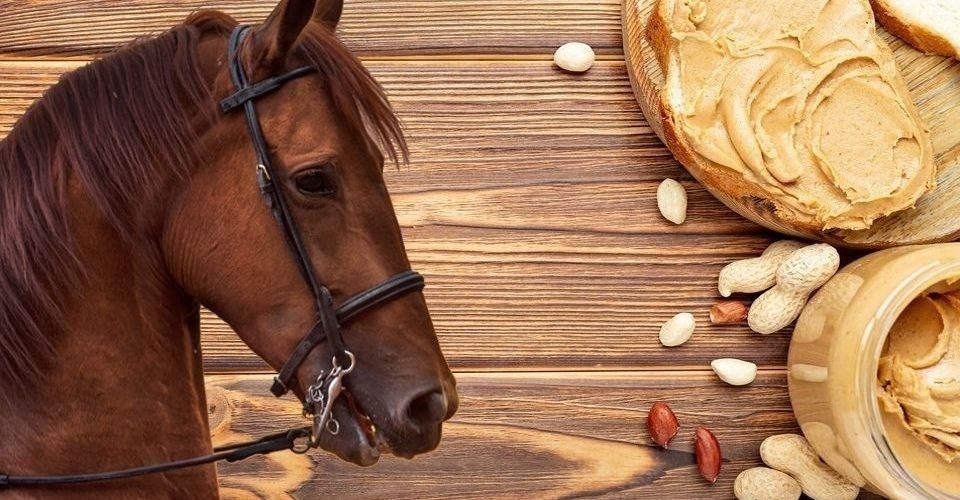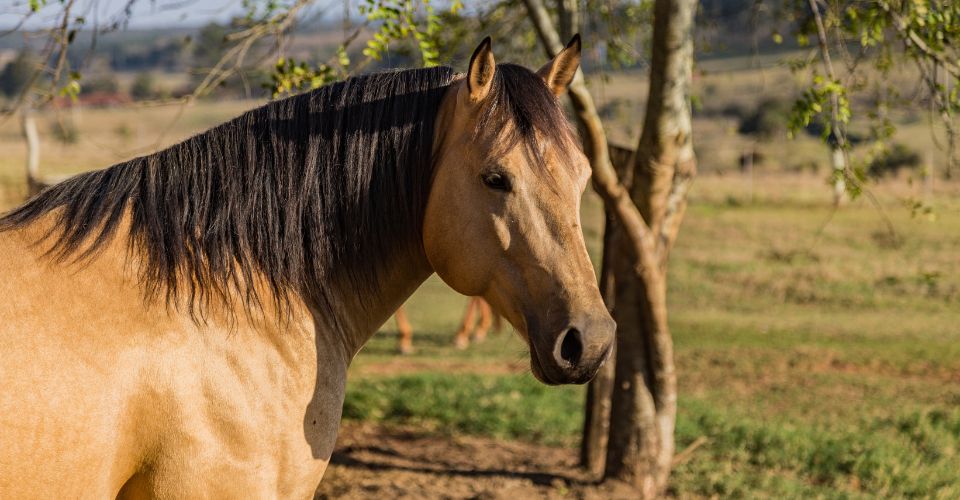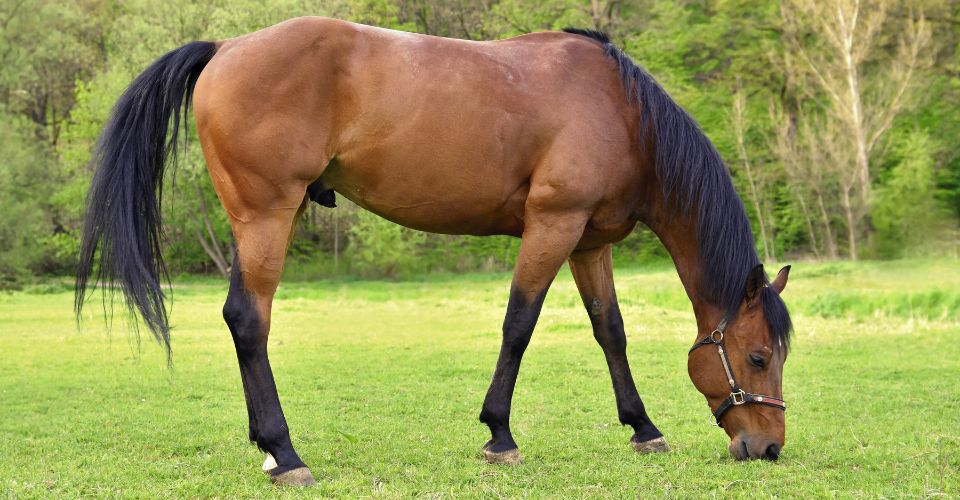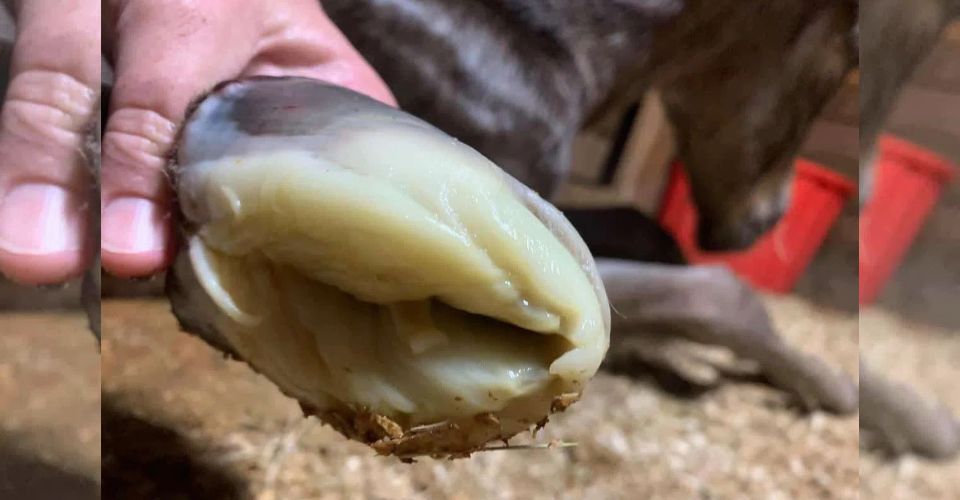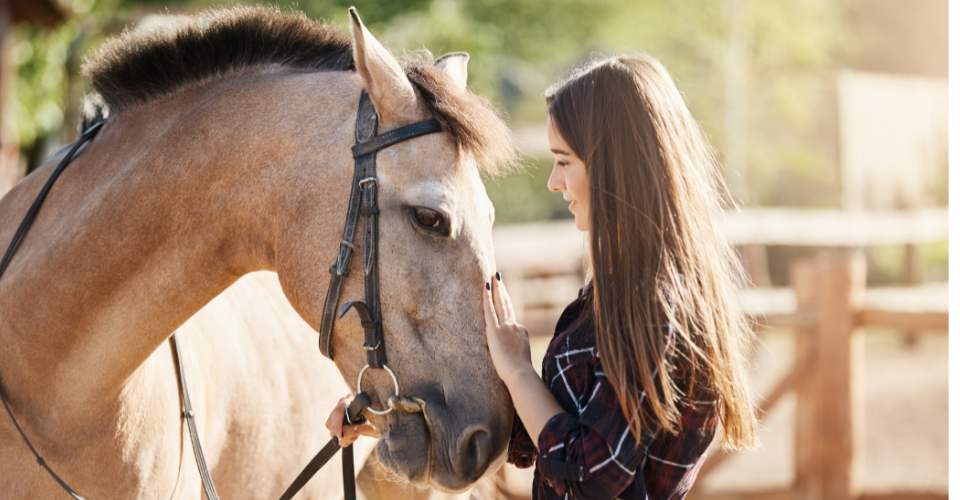Offering something atypical to your horse to eat is always a task full of hesitations. It quickly turns out to be a dilemma when your steed apparently loves it, but you, being sincere to your ‘hoofy’ friend, just want to be sure that it is not something bad for him.
And since peanut butter is present in almost every home, the question “can horses eat peanut butter” might have crossed your mind many times because it tastes great, and its composition does not seem to contradict a horse’s diet requirements. However, it is not that simple: there are certain caveats attached that you need to be aware of. Let us explain.
Can Horses Eat Peanut Butter?
Yes. Generally, equine nutritionists and vets agree that all types of nut butter are safe for horses if eaten in moderation. Not just safe, peanut butter has to offer many nutritional benefits to horses.
Now that we have a straightforward answer, it is about time we unravel the details. For instance, what is the definition of ‘moderation,’ and what are the dimensions of safety in it? And what nutritional benefits? Let us make everything crystal clear, one by one.
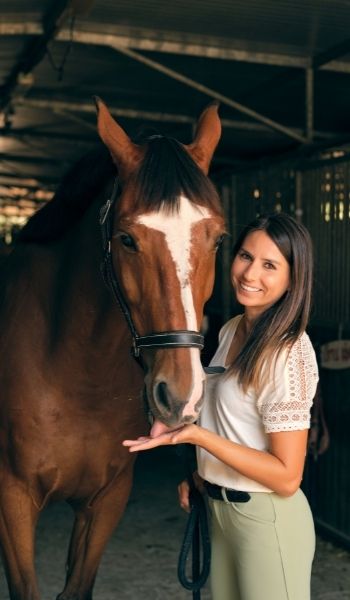
Do Horses Like Peanut Butter?
Do horses like to eat peanut butter in the first place? Yes.
It is no secret that horses love human foods, and peanut butter is no exception, though it is not a part of the horses’ staple diet. Horses, in fact, absolutely love the taste of peanut butter – they go crazy for the crunchiness of roasted peanuts in it.
Just have a look at this video below and see how this steed had utterly no qualms about having peanut butter. Sniff, sniff, eat, eat!
What Are the Health Benefits of Horse Eating Peanut Butter?
Peanut butter is among the highly nutritious foods for horses. It is full of advantageous nutrients such as protein which can help maintain the well-being of this healthy and large creature.
To get a satisfying insight into how much any specific nourishing nutrient is available in peanut butter and what effect it can have on horses, have a look at the table below:
| Nutrient | Quantity | Beneficial Effects on Horses |
| Calcium | 15.04 mg | It is required for neuromuscular functioning, cell signaling, and blood clotting. |
| Magnesium | 113.6 mg | It is essential for a healthy brain, nerve functions, and hoof growth, and it prevents several health problems. |
| Phosphorus | 117.76 mg | It is vital for skeletal health and bone development. It is also essential in repairing body tissues and cells. |
| Potassium | 213.4 mg | It plays an important role in normal muscle contraction and relaxation. |
| Proteins | 8.23 g | Proteins can serve horses’ health in a variety of ways. They maintain their immunity, regulate their metabolism, transport nutrients through the bloodstream, and above all, they are necessary for overall growth and maintenance. |
| Vitamin A | 1250.24 IU | It has an antioxidant function. Moreover, it supports the vision and immune and reproductive system of horses. |
| Vitamin B3 | 4.28 mg | It can increase blood flow and circulation. In addition, it helps maintain the smooth functioning of the nervous system. |
| Vitamin B6 | 0.71 mcg | It helps maintain proper metabolic functions and blood sugar levels, mood, and hormone production in horses. |
| Vitamin B9 | 76.48 mcg | By ensuring the maintenance of red blood cells, it improves hemoglobin levels, necessary for optimal oxygen supply to muscles. |
| Zinc | 4.61 mg | It is involved in protein synthesis, immune function, and antioxidant production. Additionally, it is required to maintain healthy hooves. |
How to Feed Peanut Butter to Horses?
While peanut butter is okay for horses, there are certain dos and don’ts that owners should be aware of while feeding peanut butter to their horses.
Dos
Only give peanut butter to your horse sparingly as a treat – no more than two tablespoons and only once a week.
If your horse has never had any nut before, start offering peanut butter to him in small amounts – no more than a quarter tablespoon – and then gradually increase the quantity.
Don’ts
Do not feed peanut butter to young horses as they might have trouble digesting it.
Do not feed your horse peanut butter with bread. It may disrupt the insulin level and digestive system of your horse.

When Should Horses Not Have Peanut Butter?
Coming to the dimensions of safety involved in horses eating peanut butter, although there are several benefits associated with the horse eating peanut butter, you should avoid sharing peanut butter with your horse if he has any of the following conditions:
Allergy
Though rare, horses can become allergic to nuts. If any sign of allergy pops up in your horse, you should stop offering him peanut butter. The signs include colic, diarrhea, hair loss, itchiness, etc.
Overweight and Obesity
Since the horses suffering from obesity should refrain from eating too many calories, they should be kept away from peanut butter due to excessive fats and sugars in it. However, conversely, if a horse struggles to increase its weight, peanut butter can work wonders.
Metabolic Disorders
You should not give peanut butter to your horse if he has hyperinsulinemia. In this situation, horses become insulin resistant, as their cells cannot absorb enough glucose despite the presence of enough insulin. It can eventually cause a very high blood sugar level, which can even lead to death. In such cases, it is in your horse’s best interest not to eat peanut butter.
What Are the Side Effects of Horse Eating Peanut Butter?
As mentioned earlier, there are certain risks associated with horses eating peanut butter, mainly because of the high calories and sugar content in it. High in calories, making peanut butter an integral part of the horse diet or eating it in excess can significantly gain weight in horses.
The high sugar content of peanut butter can cause a spike in blood sugar levels. Besides obesity, it can lead to other health issues as well such as laminitis.
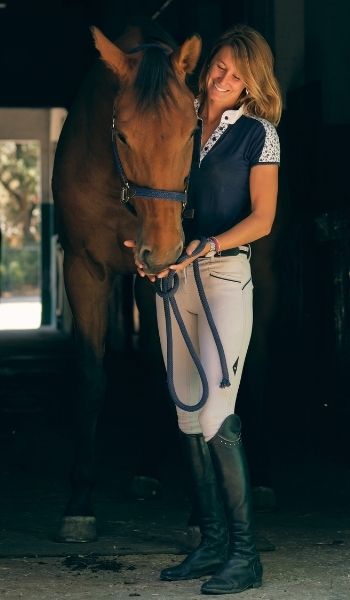
What Are Some Alternatives to Peanut Butter for Horses?
We have already seen how much a horse might love peanut butter, but since it has some disadvantages or if your horse is somewhat exceptional and does not like to eat it, here is a list of some safe and healthy alternatives:
- Apple: Apples are good for horses if fed as treats; however, feeding them too much of it can be dangerous.
- Bananas: Bananas are safe and an excellent source of potassium for horses.
- Cantaloupe: Horses can safely eat the entire cantaloupe without any problem most of the time.
- Carrot: Carrot is among the traditional favorites of horses. However, a large piece of it carries the risk of choking.
- Cucumbers: Cucumbers make a safe and healthy snack for horses but should only be given occasionally, in moderate amounts, as a treat.
- Celery: Celery is healthy and acceptable for horses.
- Pumpkin: Pumpkins are safe for horses. Nonetheless, it should be served in slices only.
- Strawberries: Strawberries are good for hydration and immunity in horses.
Horses Eating Peanut Butter FAQs
Are Peanut Butter Cookies Safe for Horses?
Yes. Peanut butter cookies are safe for your horses. But remember – just like in the case of peanut butter, they must be served in moderation.
Organic vs. Inorganic Peanut Butter: Which One Is Better?
Organic peanut butter is better for horses. It is, as a matter of fact, 10 times safer than the inorganic one because it is free of artificial additives that can have bad health effects. If you cannot find organic peanut butter, you can easily prepare it at home – thanks to video tutorials widely available over the internet!
Final Verdict: Can Horses Eat Peanut Butter?
Yes, you can most definitely share the sweet and crunchy taste of peanut butter with your horse; it is a safe and healthy snack for horses as long as it is being offered in moderate amounts – not more than two tablespoons once a week. That said, you should avoid sharing peanut butter with your horse if he is allergic, diabetic, or experiencing weight problems.

